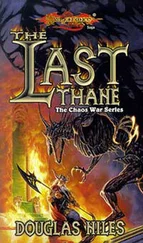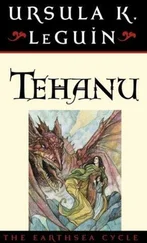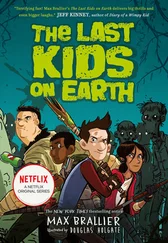“How’s your hand?” someone asked.
He turned around and found himself face-to-face with a woman whose stare could have knocked down a few trees; although she looked like she’d skipped one meal too many, she seemed huge in spirit. She had long soot-black hair that curled in the constant mists of Washington, and she wore a long skirt, a gray flannel shirt, and dark boots—a masculine outfit for a woman, particularly one as beautiful as she.
“How’s my hand?” Graham repeated her question, unsure how to respond. He lifted his arm a bit, as if to display the bandage. “It’s a little bit smaller than it was this morning.”
“They’ve been making you work faster lately, huh?”
“Guess so.”
She shook her head. “Miracle you still have nine fingers.”
They got to talking, Graham impressed with the fact that she had initiated a conversation with a man she didn’t know, a fairly bold thing for a woman to do. And he was glad she’d done it, giving him permission to study that face, to talk to a woman he didn’t have to pay, a woman who seemed to take some interest in him. It made him feel off balance, at first, but maybe that was just the morphine.
“You’re not a member, are you?” she asked. “You don’t have a red card?”
Graham held his tongue for a moment, the twin bodyguards of caution and self-preservation keeping him silent. He did not have a red card, but even the subject of Wobblies was so taboo that he was reluctant to discuss it with a stranger, albeit an attractive female one.
Turned out she was a Wobbly herself and had arrived in town only a few days ago from Chicago. There had been rumors of a planned general strike for a couple of weeks; the mill owners had announced pay cuts and the unions were not pleased. Graham knew all this but had been doing his best to ignore it. He hated the mill owners as much as anyone, he figured, but every time a strike flared up, he lost everything he had and eventually had to pull up stakes and move to a new job in a new state. He liked Everett—he liked the neighborhoods of family houses and the kids running around after school, he liked being a part of the armada of men heading to the mill in the morning as the sun rose before them, slowly illuminating the tops of the tall trees that loomed above every road, capping them with halos of light. This was a place where he could stay. He hadn’t worked out the math yet, but he figured with the higher pay he’d been getting as a shingle weaver, he might be able to save enough to get his own place. Maybe get married and start a family.
Graham said as much to his toothsome inquisitor, skipping the part about marriage.
“So you want to keep slaving away till you don’t have any fingers left?” she asked.
He looked at his right hand—then and henceforth known as his good hand—and extended his fingers. Then he looked her in the eye and said, “I just want to keep the other nine.”
She reached out and handed him a pamphlet. “If you change your mind, this tells you when we’re meeting next. Maybe we can help you hold on to what you’ve still got.” She smiled when she said that, for the first time.
“What’s your name?” he asked. She said it was Tamara. He told her his name and thanked her for the pamphlet, and she nodded and walked away, to someplace important, judging from the speed of her steps and the confidence of her stride.
It was worth losing a finger to meet her. He’d lose another one if that was what it took to see her again.
So it was neither political nor economic motives that inspired Graham to attend his first official meeting of the Industrial Workers of the World. As he sat in the crowd, listening to the speakers—some of whom were from Everett but many of whom were from Chicago and other distant locales, rebels imported from the sites of many a clash between worker and owner—he fixed his eyes mostly on Tamara, until she looked back at him and he switched his gaze to the floor, his cheeks reddening. It took a couple of minutes for him to work up the nerve to look at her again. Had he actually blushed? He was a man who had felled trees and even bigger men, and he was blushing because he had looked at some lady who dressed like a female logger? He put his left fist inside his other hand, massaging the knuckles.
He was nervous when he walked up to her afterward and told her he was buying that red card, and they talked more about the possibility of a general strike and what it might do to the town. He was nervous when he asked to walk her home; she declined because she’d come with friends, but thanked him just the same. And he was nervous at the next meeting when the situation pretty much repeated itself, except this time she accepted his invitation.
But strangely, Graham wasn’t nervous the first time he kissed her—on the cheek, after the third walk home—maybe because nerves know when something is right. He had finally figured out what it was he’d been running from, or running to.
Any hope for a normal courtship, however, was thwarted by the strike that commenced two weeks into Graham’s life as a nine-fingered man. And what a strike it was—nearly every mill in town halted, the saws stilled and the trees standing proud and tall as if perfectly confident that not another Douglas fir within the town’s borders would ever fall again. And all the men on the streets, men in lines, men holding signs, men shouting. And eventually men fighting: strikers fighting with scabs and with strikebreakers, strikers with no accent fighting strikers with thick accents, cops fighting strikers. Surrounding them.
Graham’s scant savings were near extinction when the violence escalated. Sheriff McRae had started hiring thugs who were friendly to the Commercial Club, the mill owners who wanted to see the strike broken and the outside agitators sent back from whence they’d come. Strikers like Graham soon learned which street corners to avoid after dark and how to steer clear of any man who wore a handkerchief tied around his forearm—the mark of McRae’s vigilantes, who wore them so the real cops would know who was who when fights broke out. Graham heard about how the cops were going to start arresting anyone who gave a public speech, which made him think of Tamara, who’d taken to doing exactly that.
“It ain’t worth it,” he told her. “They’ll arrest you, and then Lord only knows what they’ll do.” He almost added, I ain’t going to let no woman of mine be manhandled by a bunch of lousy cops, but he knew not to say that. She was only just barely “his woman,” and she was not the type who liked to think of it that way.
As he’d expected, she was defiant. “They can’t arrest me just for talking, and if they do, so be it.” She told him about her idol Elizabeth Gurley Flynn, the original Rebel Girl and doyenne of “the cause.” Gurley Flynn had been put in jail more times than you could count, Tamara said, but she never gave up the fight. Tamara proudly declared herself a rebel girl as well, so bring on the cops.
Graham had to admire her fire, but he wondered what this educated Chicago woman—she’d been in college when she first joined the Wobblies, she told him—really knew about anything. She talked a good talk, and she sure as hell never acted scared, but just to be sure, Graham tailed her to the street corner where she’d told him she’d give her speech that night. It was dark and anything but quiet—people were milling all around, chatter that exploded into laughter now and then but always highly charged—when the speeches finally started. First it was a hulking fellow with a thick beard and some accent Graham figured was Hungarian. After the fellow’s final fist-shaking exhortations, Tamara took to the pulpit.
She started telling them about a recent strike in New Jersey and how things had looked bleak but everyone had stuck together. They had refused to submit to a few men in back rooms who controlled everything, and so will we, she said. The applause was so loud that it almost completely shrouded the sound of McRae’s goons moving in from the edge of the street and swinging their unimpressed clubs. Then the applause was gone and all that could be heard were the sounds of fighting, of dropped bottles popping when they hit the ground, of bones breaking and feet stomping and kicking, voices shouting and crying and grunting in an ever-tightening mass of enraged humanity. Graham pushed some folks out of his way and headed for the makeshift stage, where he grabbed Tamara by the wrists and pulled her through the crowd. An arm with a handkerchief tied around it got pretty close to them, but Graham jabbed a fist into the man’s nose and the goon dropped back. In a few frantic seconds they’d escaped not only the melee but also the notice of the cops who were standing beyond the crowd, supposedly to arrest anyone who tried to escape.
Читать дальше












